The 19 Best Substitutes for Coconut Sugar
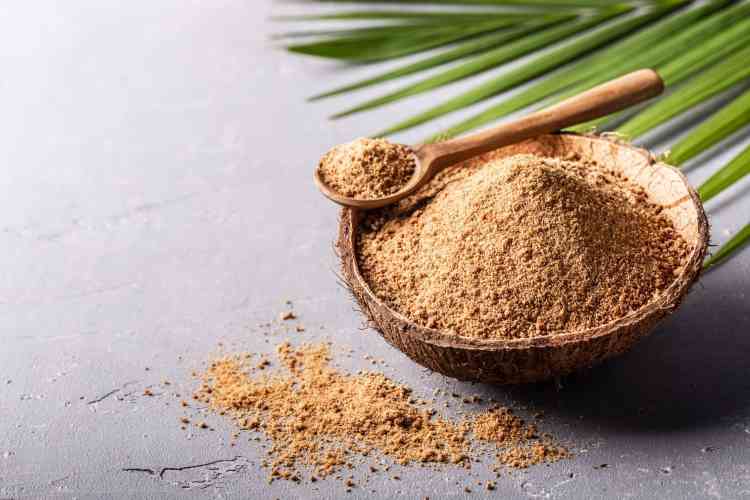
Looking for some great substitutes for coconut sugar? This plant-based sweetener is often praised as an alternative to cane sugars and other sweeteners, particularly in Asia, where it is a popular ingredient to sweeten savory dishes and desserts.
It is also often used as a lower-glycemic and less processed alternative in more health-conscious and vegan recipes, particularly since the technique of extracting the sweetener does not involve the bone char typically used in processing refined sugars.
While coconut sugar is popular in many cuisines, you may find it missing from your pantry when you most need it. We’ve rounded up a few great alternatives to coconut sugar, some widely available and many perhaps already in your home. They make a great alternative in a pinch and may save you a trip to the market while still offering a similar sweetness and flavor to whatever you may be cooking up.
- What Is Coconut Sugar?
- Purpose of Coconut Sugar in Cooking and Baking
- 9 Granulated Substitutes for Coconut Sugar
- 4 Low-Carb Substitutes for Coconut Sugar
- 6 Liquid Substitutes for Coconut Sugar
What Is Coconut Sugar?
Coconut sugar is a common plant-based sweetener that also happens to be much less processed than regular cane sugar.
Often called coconut palm sugar or coconut crystals, it is created from the sap of the coconut palm tree. The sap is extracted directly from the flowers of the tree and then dehydrated to create the resulting sugar crystals.
Its origins are believed to stem from Malaysia, where coconut palms are plentiful, making it a common ingredient in recipes throughout the region.
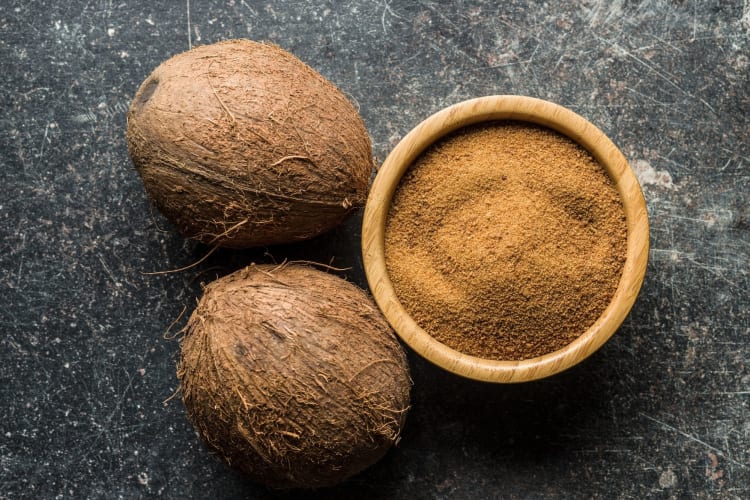
Is Coconut Sugar Healthy?
Coconut sugar is often touted as a healthier choice compared to regular cane sugar because it undergoes less processing. However, simply being less processed doesn't automatically make it the healthier option. Although coconut sugar contains trace amounts of vitamins, minerals and fiber such as inulin, these nutritional benefits are not significant unless you eat a lot of it. Once you consume large quantities, the advantages of these nutrients get overshadowed by the high sugar content, which isn't good for you in excess.
Coconut sugar has the same number of calories as any other type of sugar, regardless of whether it's refined or not. Therefore, the key takeaway is that you should feel free to use coconut sugar if you enjoy its flavor or it suits a particular recipe. But, just like any other sugar it is best to enjoy it in moderation.
Purpose of Coconut Sugar in Cooking and Baking
Coconut sugar has a sweet caramel color and flavor that is milder and more subtle than white sugar. It also contains more minerals than other cane-based sweeteners like white sugar, brown sugar and molasses. Coconut sugar as a sweetener is particularly popular in vegan baked goods like cookies and muffins.
Looking for ideas on how to use coconut sugar and coconut sugar alternatives to their best advantage? Try a chef-led cooking class, which can not only introduce you to new cuisines and techniques, but also help you make great substitution choices. You can find cooking classes in NYC, cooking classes in Toronto or classes in other cities worldwide. Book a cooking class near you to reap the culinary benefits, or go in for a live, interactive online cooking class to learn in your own kitchen.

9 Granulated Substitutes for Coconut Sugar
1. Brown Sugar
One of the most likely sugars to have in your pantry, brown sugar is one of the best coconut sugar substitutes. Brown sugar is sugar that has molasses added to it, resulting in a richer, sweeter flavor than more refined sugars. The brown coloring of this substitute more closely resembles coconut sugar than many other substitutes.
Swap an equal amount of brown sugar for coconut sugar without tamping down the brown sugar as you would in typical recipes.
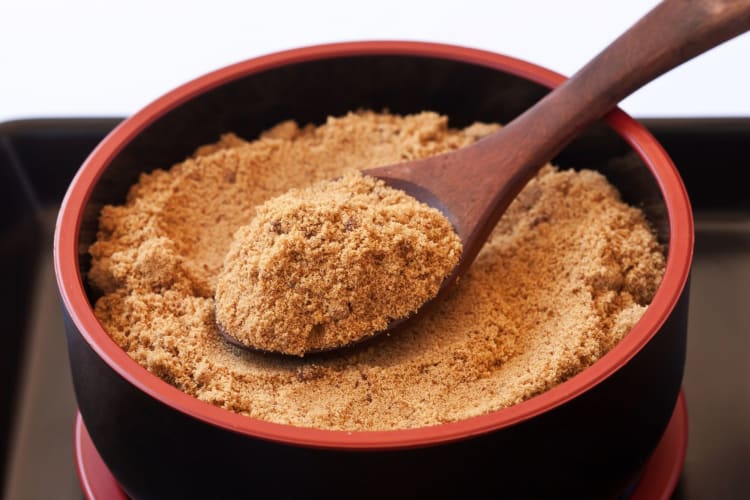
2. Granulated Sugar and Molasses
If you would like to use brown sugar as a substitute for coconut sugar but discover you have none in your pantry, you can easily make your own brown sugar substitute by combining 1 cup of regular white granulated sugar with 1 tablespoon of molasses. Use the finished product in a 1:1 ratio as a substitute for coconut sugar.
3. Sucanat
Sucanat is regular cane sugar that undergoes less processing than other varieties. Its golden color and caramel flavor make it a great substitute for coconut sugar in a pinch. Like brown sugar, it has notes of molasses. You can use sucanat in equal amounts to coconut sugar, though its coarse grains may often be more difficult to dissolve than other cane sugars. You can use it to sprinkle on top of foods or grind it down to an even finer consistency while cooking.
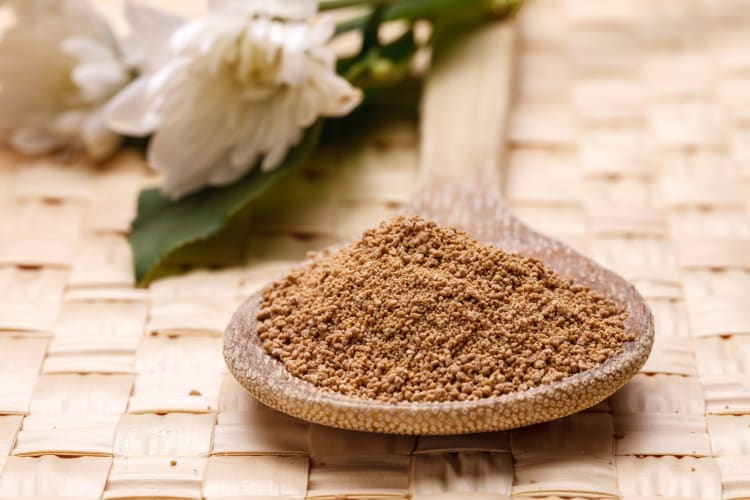
4. Maple Sugar
Maple sugar is the granular substance formed when maple syrup is dehydrated. Its light brown color is very similar to coconut sugar, making it an excellent substitute. The sugar will have the usual distinctive maple flavor but will lack coconut sugar’s more caramel-like taste.
Make your own maple sugar at home by boiling maple sap or unprocessed syrup straight from the tree until it forms crystals. Use a 1:1 ratio to coconut sugar as a replacement.
5. Demerara and Turbinado Sugar
Often sold as raw sugar, usually in packets, this less processed alternative to regular sugar boasts a similar brown coloring and caramel flavor to coconut sugar. While courser and more difficult to dissolve than other finer and refined sugars, these make an excellent 1:1 substitute for coconut sugar when ground to a finer consistency.
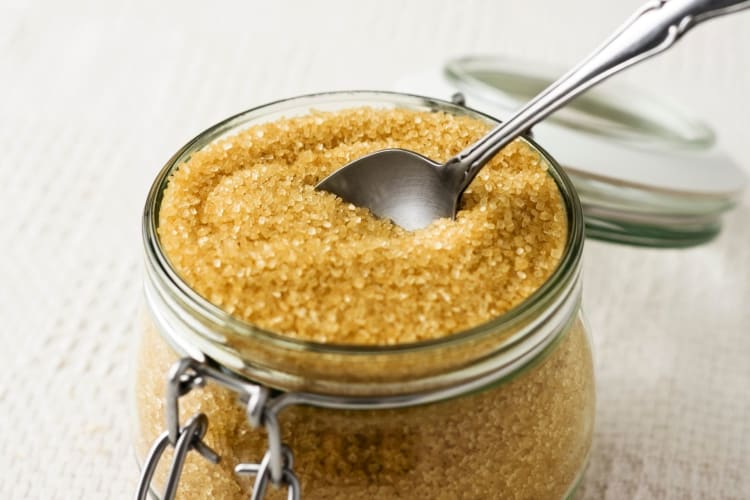
6. Date Sugar
Date sugar is made from the dehydrated powder of ground dates. It is often used as a substitute for regular sugar in more health-conscious recipes, making it a fitting substitute for coconut sugar in many cases. It is also richer in fiber and other minerals than many sweeteners. Use in a 1:1 ratio as a coconut sugar substitute.
7. Palm Sugar
Sometimes confused for coconut sugar, this sugar is dried and processed in a similar way but is harvested from different varieties of palm trees, including date palm, nipa palm or sugar palm trees. The coloring and taste are similar to coconut sugar, making it an excellent substitute. It is usually sold in blocks or a paste that needs to be grated or ground down, but the loose substance can be used in a 1:1 ratio as a substitute for coconut sugar.
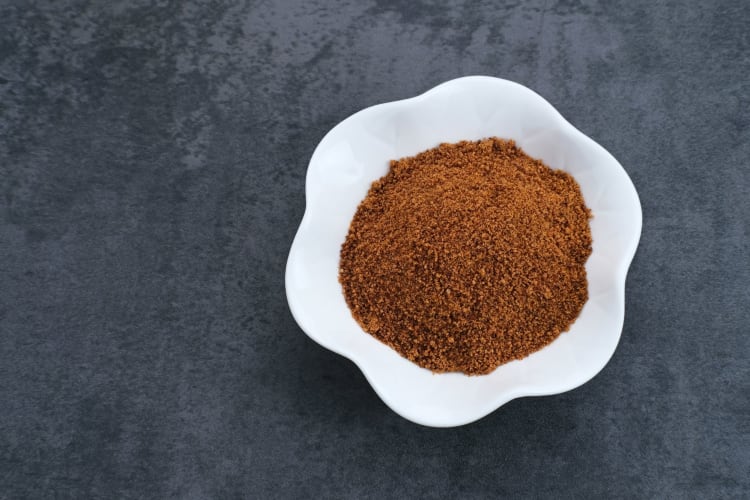
8. Coconut Flakes and Granulated Sugar
You can create a quick substitute for coconut sugar by mixing dried ground flakes of coconut with regular granulated sugar. Combine 1 cup of unsweetened shredded coconut flakes with ¼ cup of white granulated sugar to use as a 1:1 substitute for coconut sugar.
9. Panella
Known as piloncillo in Mexico and other Latin American countries and jaggery in Asian countries, panella is a brown sugar that usually comes in a cone shape. This less-refined sugar paste is often compared to brown sugar in flavoring, making it an appropriate 1:1 ratio substitute for coconut sugar.
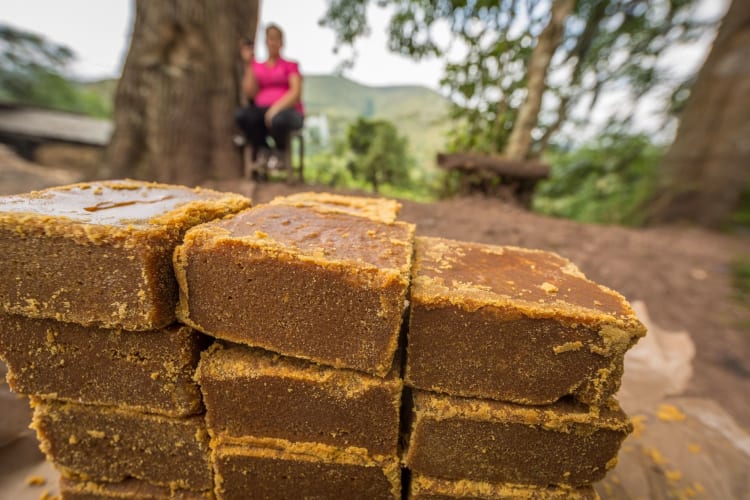
4 Low-Carb Substitutes for Coconut Sugar
10. Monk Fruit
This sweetener, derived from the monk fruit, is up to 250 times sweeter than granulated sugar but contains zero calories and carbs, making it a popular sugar substitute in general and a fitting sub for coconut sugar. While many recommend a 1:1 ratio, you may want to adjust for taste when swapping it for coconut sugar due to the higher sweetness level.
11. Stevia
One of the more popular sugar substitutes on the market, this sweet extract from the stevia plant is often used as a less carbohydrate-rich alternative to conventional sugars. You can purchase it in liquid or powder form, but keep in mind that stevia is typically about twice as sweet as cane sugar, so you may only want to use half as much in any recipe.
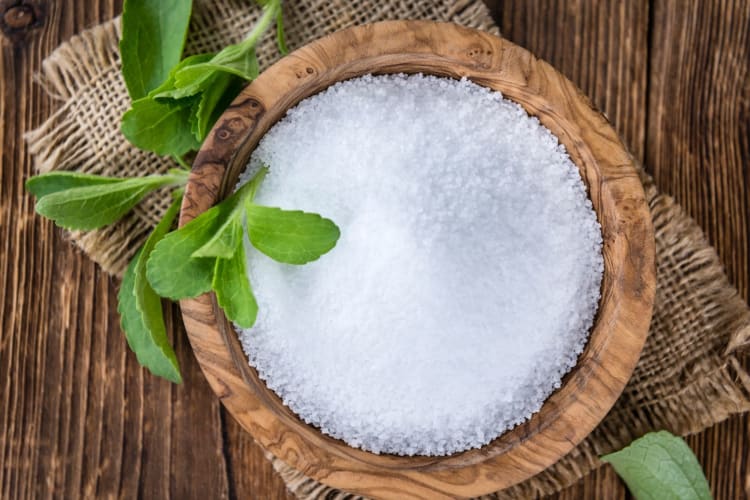
12. Xylitol
Xylitol is a plant-derived sugar alcohol often used as a lower-calorie substitute for sugar. Commonly used in manufactured sugar-free candies and gums, this substance makes a great low-carb and low-calorie substitute for coconut sugar. Like many artificial sweeteners, its sweetness is far more intense, so use less in most recipes to taste.
13. Erythritol
Another popular sweetener alternative to sugar, erythritol is created from the fermented yeast of corn or wheat starches. Slightly less sweet than xylitol or cane sugars, erythritol makes a comparable substitute for coconut sugar, though it can create digestion and bloating problems in large amounts. Use in a 1:1 ratio.
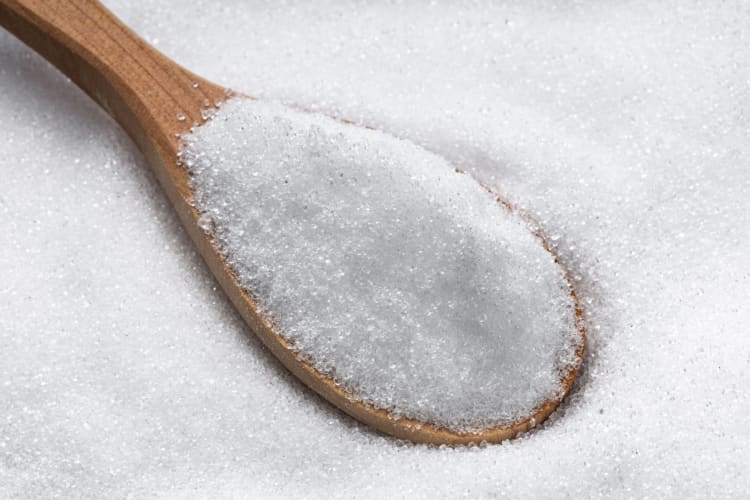
6 Liquid Substitutes for Coconut Sugar
14. Honey
Any variety of honey will make a quick substitute for coconut sugar, though you may want to use raw honey for best results. Raw honey is the least processed variety of honey, culled directly from the hives. It does not undergo heating, cooling or contain additives, making it more nutritious than other varieties of honey as well as more flavorful.
While it is a health-conscious alternative to refined sugars, as an animal product it is often prohibited in vegan recipes.
Use raw honey in a ratio of 1:4 as a coconut sugar replacement, though you may need to adjust the liquid content of the recipe to account for extra liquid.
15. Maple Syrup
With its sweet and distinctive flavor as well as its easy availability, maple syrup makes an accessible coconut sugar alternative, though it will impart a slight maple flavor. While any maple syrup will work in a pinch, you will get the best results with purer and less processed maple syrup. Like honey, use syrup in a 1:4 ratio as a substitute.
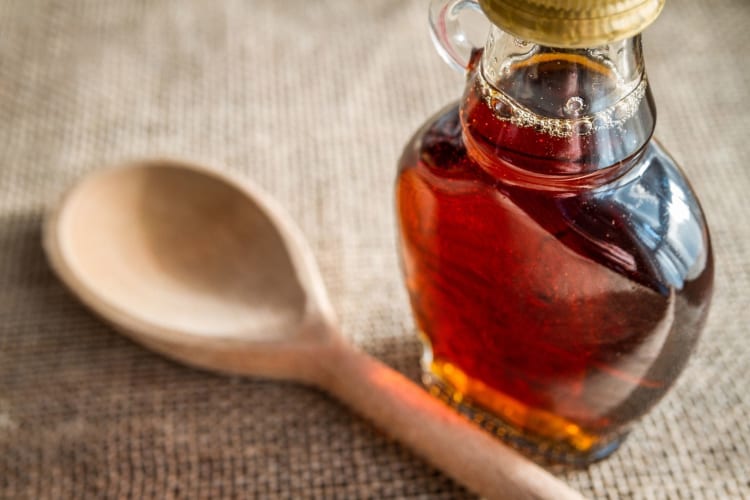
16. Agave Syrup
Harvested as the nectar of the agave plant, this sweet nectar is popular in both cooking and cocktail making. While chefs recommend a 1:4 ratio, its flavor is often sweeter than other liquid substitutes for coconut sugar, so use more sparingly as needed.
17. Molasses
While its flavor is definitely more distinctive than other sweeteners, molasses by itself can be used as a coconut sugar substitute, though keep in mind any dish made from it will have a slight molasses flavor to it. Made by refining sugar cane into a liquid, this thick substance can be used in a 1:4 ratio to taste in many recipes requiring coconut sugar.
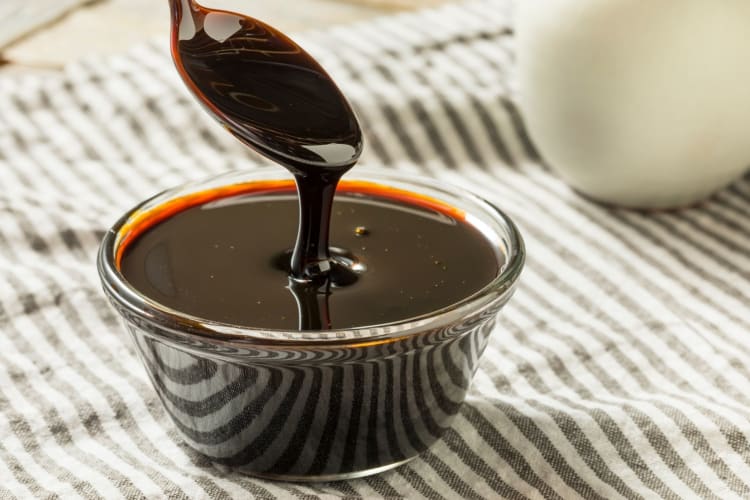
18. Brown Rice Syrup
This thick and sticky sugar substitute is created by soaking brown rice grains in water and extracting the syrup that is created. The flavor is rich, with a consistency like corn syrup, making it a great coconut sugar alternative. Because of its more full-bodied consistency, use only about ¾ cup of brown rice syrup to the required coconut sugar.
19. Caramel Sauce
Often used as a topping and baking ingredient, this sweet substance can be used as a readily available coconut sugar substitute in a pinch. Due to its sweetness and flavor, it’s a great swap for the real thing, particularly in beverages or desserts that require caramel flavoring already. Use a 1:4 ratio.
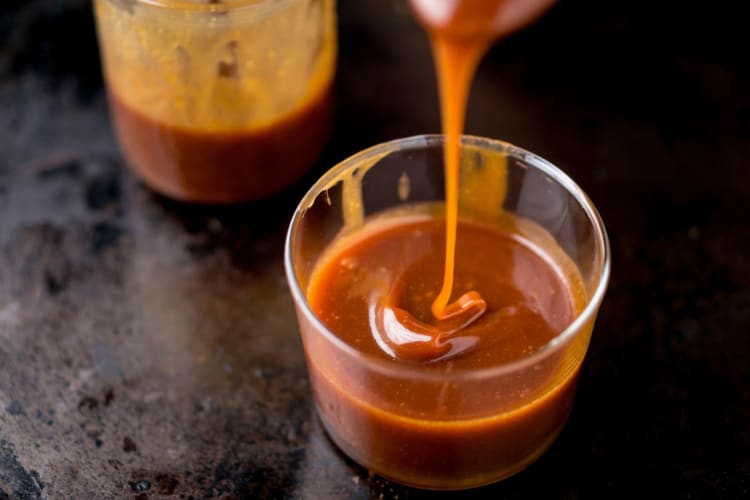
If you find yourself looking for a substitute for coconut sugar, any of the above will create the sweetness your recipe is looking for. While coconut sugar’s subtle sweetness and rich, caramel taste give it a flavor profile all its own, these coconut sugar replacements can do the job in a pinch and prevent a last-minute trip to the store.
For even more ways to explore your favorite foods, check out other experiences happening on Cozymeal.
